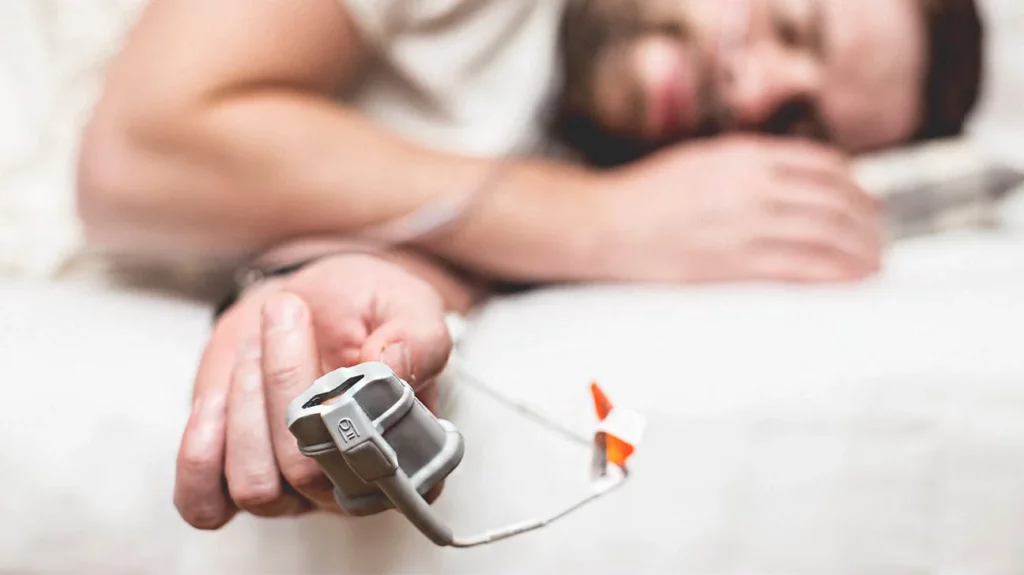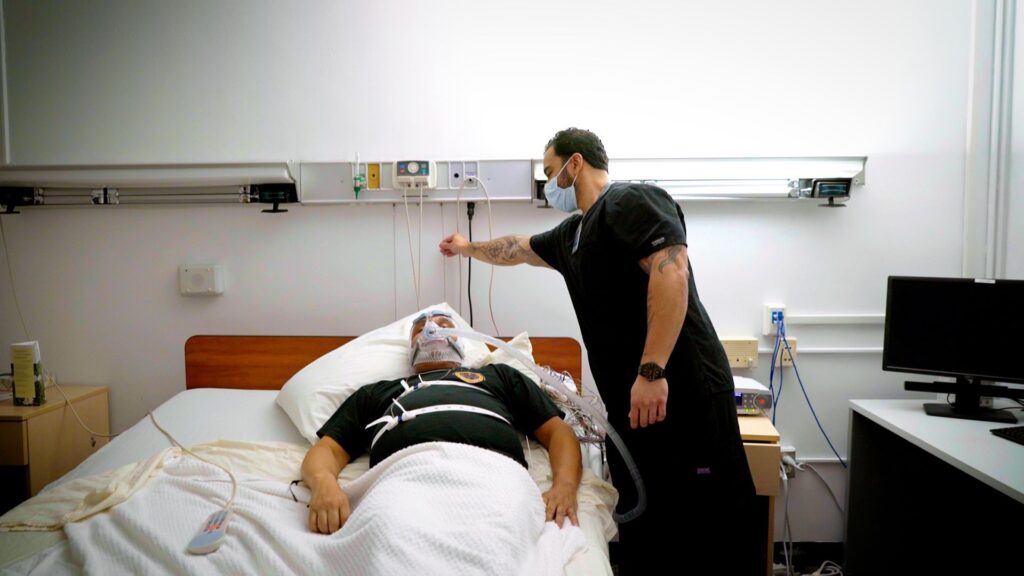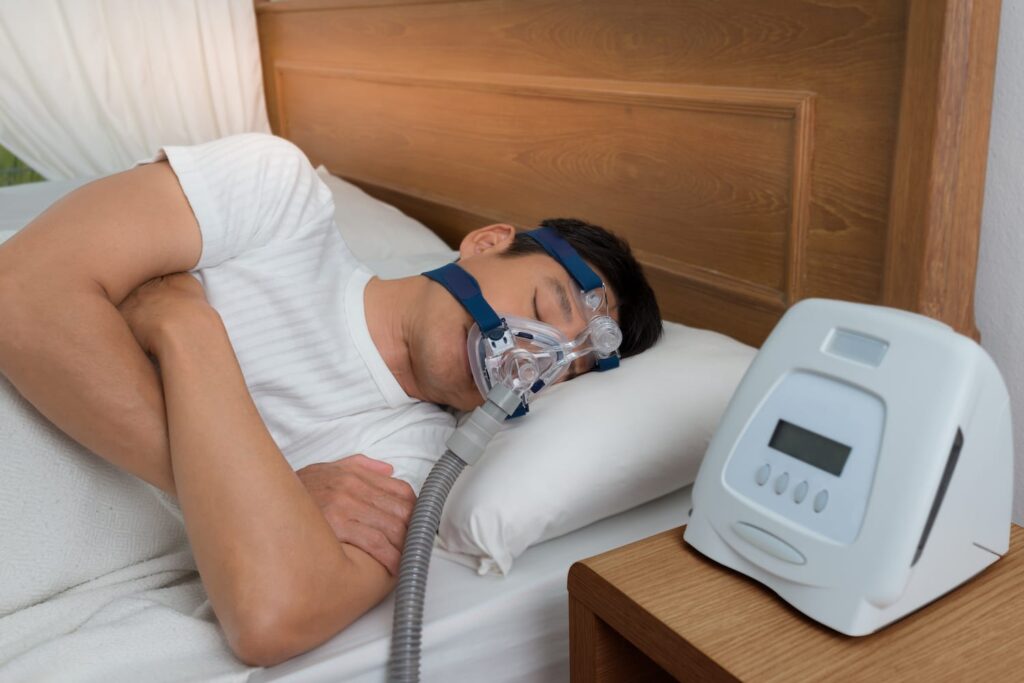Sleep apnea is a common sleep disorder that affects many people in Australia. It is characterized by pauses in breathing or shallow breathing during sleep. These pauses can last for a few seconds to a few minutes, and can occur multiple times throughout the night. If left untreated, sleep apnea can lead to serious health problems, including high blood pressure, heart disease, and stroke. To diagnose sleep apnea, a sleep apnea test is often conducted. In this article, we will explore how a sleep apnea test at home works in Australia.
Understanding Sleep Apnea
Sleep apnea is a condition that affects the way a person breathes while they are asleep. It occurs when the airway becomes partially or completely blocked during sleep, causing the person to stop breathing for a short period. Sleep apnea can be categorized into two types: obstructive sleep apnea (OSA) and central sleep apnea (CSA). OSA is the more common type, and it occurs when the muscles at the back of the throat fail to keep the airway open. CSA, on the other hand, is a less common type and it occurs when the brain fails to send proper signals to the muscles that control breathing.
In conclusion, a sleep apnea test at home Australia offers a convenient and effective way to diagnose sleep apnea in Australia. By understanding the symptoms, risks, and importance of sleep apnea testing, individuals can take proactive steps towards managing their condition and improving their overall sleep health.
Understanding the underlying causes of sleep apnea is crucial in effectively managing the condition. Factors such as obesity, smoking, alcohol consumption, and anatomical factors like a narrow airway or large tonsils can contribute to the development of sleep apnea. Additionally, age, family history, and certain medical conditions such as nasal congestion and hypertension can also increase the risk of experiencing sleep apnea.
Symptoms of Sleep Apnea
Some of the common symptoms of sleep apnea include loud snoring, excessive daytime sleepiness, morning headaches, and irritability. In addition, people with sleep apnea may also experience difficulty concentrating, memory problems, and decreased libido. If you or your partner have noticed any of these symptoms, it is important to consider getting tested for sleep apnea.
Furthermore, individuals with sleep apnea may also experience nocturia, which is the frequent need to urinate during the night, as well as dry mouth and sore throat upon waking. These symptoms can significantly impact the quality of sleep and overall well-being of the individual, leading to daytime fatigue and impaired cognitive function.

Risks Associated with Sleep Apnea
Untreated sleep apnea can have serious consequences on your health. It can increase the risk of developing high blood pressure, heart disease, and stroke. In addition, sleep apnea has also been linked to an increased risk of diabetes, obesity, and depression. Therefore, it is important to seek diagnosis and treatment if you suspect that you may have sleep apnea.
Moreover, the repetitive episodes of breathing cessation during sleep can lead to oxygen desaturation in the blood, putting strain on the cardiovascular system and potentially leading to irregular heart rhythms. This chronic intermittent hypoxia can have detrimental effects on various organs in the body, including the brain, liver, and kidneys, further emphasizing the importance of early detection and management of sleep apnea.
The Importance of Sleep Apnea Testing
Early diagnosis of sleep apnea is crucial for effective treatment and to prevent further health complications. Sleep apnea testing is the first step towards understanding the severity of the condition and developing a suitable treatment plan.
Sleep apnea is a common sleep disorder that affects millions of people worldwide. It is characterized by pauses in breathing or shallow breaths during sleep, leading to poor sleep quality and daytime fatigue. While some individuals may experience mild symptoms, others may have severe obstructive sleep apnea, which can have serious consequences if left untreated.
Benefits of Early Detection
By detecting sleep apnea early, you can take steps to manage the condition and improve your quality of sleep. Treatment options such as continuous positive airway pressure (CPAP) therapy, oral appliances, and lifestyle changes can significantly improve symptoms and reduce the risk of associated health problems.
Moreover, early detection of sleep apnea can also enhance cognitive function and overall well-being. Proper treatment can help individuals feel more alert and focused during the day, improving their productivity and quality of life. Read more about productivity on https://www.bls.gov/k12/productivity-101/content/what-is-productivity/home.htm
Long-Term Health Implications
Long-term untreated sleep apnea can lead to serious health implications. The repetitive interruptions in breathing can put a strain on the heart and increase blood pressure, which can lead to cardiovascular problems over time. Treatment and management of sleep apnea can help reduce the risk of these long-term health implications.
Furthermore, untreated sleep apnea has been linked to an increased risk of developing type 2 diabetes, obesity, and even stroke. By addressing the condition early on through proper testing and diagnosis, individuals can mitigate these risks and improve their overall health outcomes in the long run.
Overview of Home Sleep Apnea Tests
In Australia, home sleep apnea tests have become an increasingly popular option for diagnosing sleep apnea. These tests allow individuals to monitor their sleep patterns and collect data in the comfort of their own homes.
Home sleep apnea tests offer a convenient and cost-effective way to assess the presence and severity of sleep apnea. By conducting the test in a familiar environment, individuals may experience less anxiety and more accurate results. Moreover, the ability to sleep in one’s own bed can provide a more realistic representation of typical sleep patterns, leading to a more comprehensive evaluation.
Components of a Home Sleep Apnea Test
A typical home sleep apnea test kit includes a portable device that measures different parameters while you sleep. These devices often include a small sensor that is placed on your finger to measure blood oxygen levels, a nasal cannula to measure airflow, and elastic belts to measure breathing effort. The device is lightweight and easy to use, making it convenient for home testing.
Additionally, some advanced home sleep apnea test kits may also include features such as built-in accelerometers to detect body movement during sleep, which can provide valuable insights into sleep quality and disturbances. These comprehensive kits aim to capture a wide range of data to assist healthcare providers in making an accurate diagnosis and recommending appropriate treatment.

How to Use a Home Sleep Apnea Test
Using a home sleep apnea test is fairly straightforward. Prior to the test, you will receive instructions on how to properly set up and use the device. In most cases, you will be required to wear the device overnight while you sleep. Once the test is complete, you will return the device to the testing facility for analysis. Click here to read more about analysis.
It is essential to follow the provided guidelines carefully to ensure accurate results. Maintaining your usual sleep routine during the test period can help generate data that closely reflects your typical sleep patterns. By cooperating with the testing process and adhering to instructions, you can contribute to a successful evaluation of your sleep health.
The Process of Home Sleep Apnea Testing in Australia
If you suspect that you may have sleep apnea, the first step is to get a referral from your doctor. This referral will allow you to undergo a home sleep apnea test in Australia. Sleep apnea is a common sleep disorder characterized by pauses in breathing or shallow breaths during sleep. It can lead to daytime fatigue, high blood pressure, and other health issues if left untreated.
Ordering Your Home Sleep Apnea Test
Once you have received a referral from your doctor, you can contact a sleep clinic or a sleep apnea specialist in Australia to order your home sleep apnea test. They will provide you with the necessary equipment and instructions. The equipment typically includes a small device that monitors your breathing patterns, heart rate, and oxygen levels while you sleep.
Conducting the Test at Home
You will need to set up the home sleep apnea test device according to the instructions provided. The device is typically worn overnight while you sleep, and it will collect data on your breathing patterns, blood oxygen levels, and other relevant measurements. It is essential to follow the instructions carefully to ensure accurate results.
Interpreting the Results
After you have completed the home sleep apnea test, you will need to return the device to the testing facility for analysis. A sleep specialist will review the data collected and provide you with a detailed report on the results. If sleep apnea is diagnosed, they will discuss treatment options with you. Treatment for sleep apnea may include lifestyle changes, such as weight loss or positional therapy, or medical interventions like continuous positive airway pressure (CPAP) therapy.
Comparing Home Tests and Lab Tests
While home sleep apnea tests are convenient and can provide valuable information, they are not suitable for everyone. In some cases, a lab-based sleep study may be recommended for a more comprehensive evaluation of your sleep patterns.
When considering the differences between home tests and lab tests for sleep apnea, it’s important to delve deeper into the specific advantages and limitations of each option. Understanding these nuances can help individuals make informed decisions about which testing method may be most appropriate for their unique situation.
Advantages of Home Sleep Apnea Tests
Home sleep apnea tests offer several advantages, including convenience, cost-effectiveness, and the ability to sleep in your own bed. These tests are also non-intrusive and can provide valuable insights into your sleep patterns.
One key benefit of home sleep apnea tests is the comfort and familiarity of being in your own sleep environment. This can lead to more accurate results as it reflects your typical sleeping conditions, potentially capturing any nuances that may not be evident in a lab setting.
When to Consider a Lab Test
A lab-based sleep study may be recommended in certain situations. For example, if your home sleep apnea test results are inconclusive or if you have other underlying sleep disorders that need to be evaluated. Additionally, a lab-based study can provide more detailed data on your sleep patterns and help determine the severity of your sleep apnea.
It’s important to note that a lab test allows for real-time monitoring by trained professionals who can observe your sleep patterns and responses throughout the night. This level of monitoring and expertise can be particularly beneficial for individuals with complex sleep issues or those requiring a more in-depth analysis of their condition.
Other resources: Comprehensive Guide to Sleep Apnea Tests in Perth

